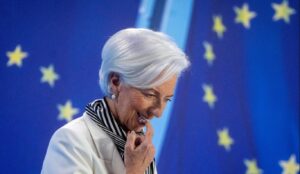Robinhood’s Approach To Solving Crypto Volatility: Override Investor’s Freedom
3 min readDespite having found itself in the middle of the controversy as a result of its decision to get in the middle of investors and their decision to acquire stock, Robinhood is now considering a feature that would do just that.
According to Bloomberg, data miners have found code suggesting an upcoming feature by the name of “price volatility protection”. The feature’s description reads: “To protect your orders against price volatility, we may sometimes skip your recurring orders or buy less than your chosen amount.”
The code shows that users will be notified when an order has been skipped or modified as a result but the need for such a feature is up to debate. With investment strategies like “dollar cost averaging” being popular among crypto investors and the existence of conditional orders, is it really necessary for Robinhood to intervene?
Stopping users from buying cryptocurrency when prices go up might work to protect them from volatility on some occasions but it might just do the opposite as well.
Robinhood is Getting It
While volatility is sometimes seen as the boogeyman, in truth it is also one of the elements that provide it with potential for bigger gains than other commodities.
It is still not certain if this feature will be optional or not but leaving investment decisions to the discretion of a centralized platform with the antecedents of Robinhood might not sit well with many users.
Robinhood Is Going Public Despite Investigations and Controversy.
Ever since becoming the weapon of choice for thousands of Redditors during the “Gamestop Short Squeeze” early in 2021, Robinhood has found itself in the spotlight of news outlets. First, it was seen as the platform that made it possible for small investors to take on Wallstreet and then as the villain who betrayed them.
After having halted the trade of stocks to “protect investors” in a move that proved controversial as some claimed the company was protecting big investors, opinions on Robinhood have been divided.
As lawmakers and regulators looked into the app’s decision and previous history, things quickly turned ugly for the controversial app.
On June 30, the Financial Industry Regulatory Authority (FINRA) found out that Robinhood had shown “Systemic Supervisory Failures and Significant Harm Suffered by Millions of Customers”, sanctioning the company with a $70 million fine.
This fine, which would be the biggest ever ordered in the regulator’s history, was the result of misinformation provided by the app to customers, which not only resulted in massive losses for some but also in one user taking his own life.
Despite this massive fine and “negative press”, Robinhood would announce later that day its intention to go public by submitting a filing with the Securities and Exchange Commission, signaling that it was moving forward with its decision independently of public perception.
Holding the Hand of Investors is Not A Good Idea
Robinhood has made itself famous based on the idea of “democratizing finance”, which has guided the app to be as user-friendly as possible. However, minimizing the risks that investors are exposed two has two major drawbacks: trusting the protector is needed and free will is negatively affected.
When it comes to trusting central authorities to protect the interest of the many, history has shown it is not a good idea. Is not only Robinhood who has failed to do so in the past but also regulators like the SEC, who argued it was protecting investors caused them losses in the millions of dollars when it sued Ripple Labs.
This makes it worth asking… Is it a good idea to trust a third party with its own interests to influence or dictate your financial decisions?
The second point is more philosophical in nature. Cryptocurrency and Decentralized Finance have been all about providing users with agency over their finances.
There are already plenty of tools that would allow an investor to control how much risk they are ready to incur when creating buying orders, why leave it up to someone else? When it comes to crypto (and any other investments, for that matter), education is the way to go… Not simplification.
For now, we will have to wait and learn more about how Robinhood is implementing such a feature, as well as hope it is optional and customizable. Did Robinhood learn something from its previous Gamestop debacle?
The post Robinhood’s Approach To Solving Crypto Volatility: Override Investor’s Freedom appeared first on Blockonomi.







